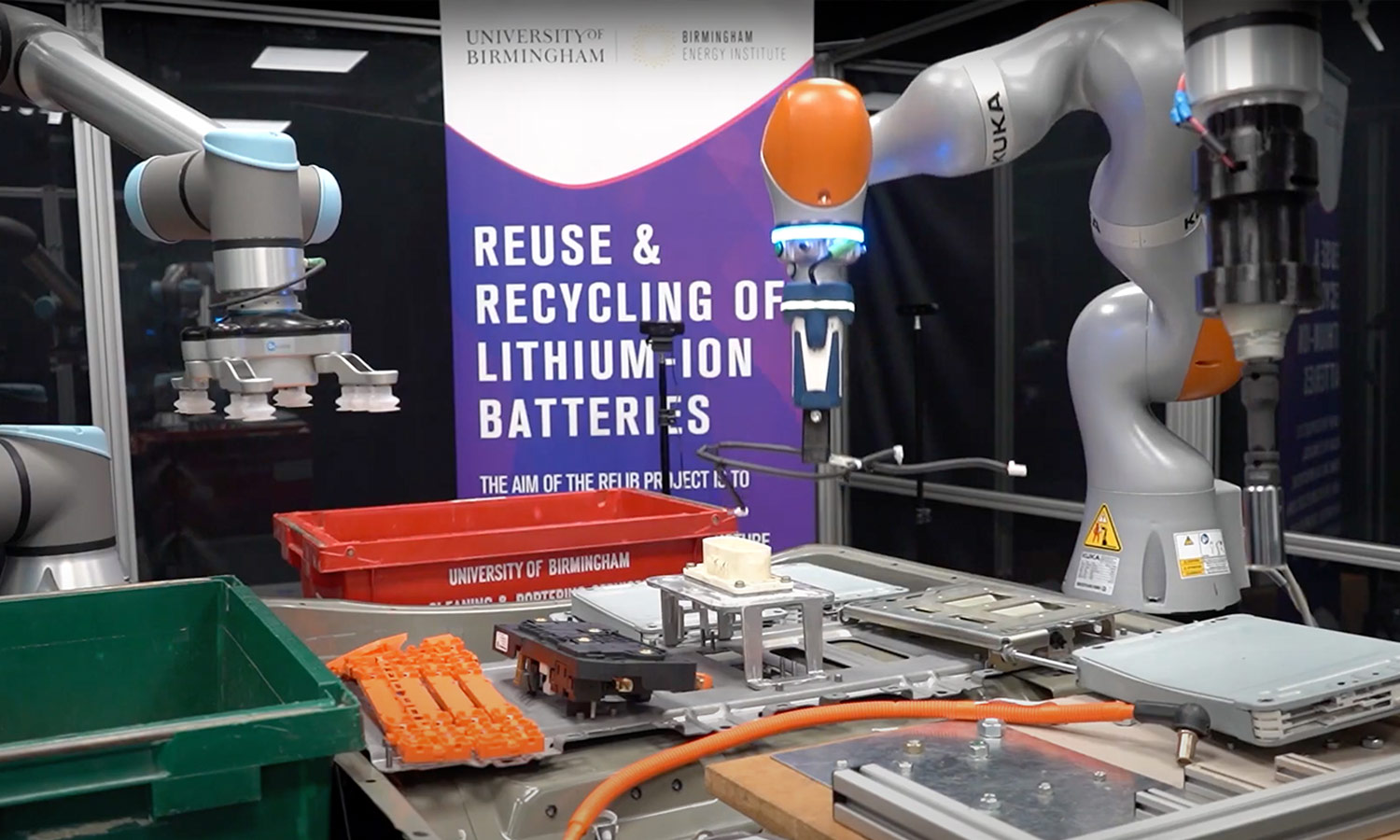A new Faraday Institution ReLiB Project publication focusing on the advancement of EV sustainability through the use of robotics has been released.
Towards Reuse and Recycling of Lithium-ion Batteries: Tele-robotics for Disassembly of Electric Vehicle Batteries, by Jamie Hathaway and Alireza Rastegarpanah, explores how semi-autonomous robotic disassembly can be used in the recovery, recycling and re-use of high-value electric vehicle battery materials.
Bringing together leading academic experts, the overarching aim of the Faraday Institution ReLiB Project is to establish a technology pipeline and provide a clear roadmap for the efficient end-of-life management of electric vehicle (EV) lithium-ion batteries in the UK, encompassing both current and future battery chemistries.
The new research explores the critical stage of electric vehicle battery disassembly and highlights the need for innovative solutions in recovery and recycling.
The study investigates the potential use of tele-robotics for semi-autonomous disassembly, aiming to overcome standardization challenges and improve safety.
Key findings include the researchers using the disassembly of a Nissan Leaf 2011 module stack as a basis for a comparative study, contrasting a traditional haptic-“cobot” master-slave framework with identical master and slave cobots.
The study found the master and slave cobots achieved a remarkable 22%–57% reduction in task completion time using identical cobots, emphasising the importance of user haptic interactions for precise, contact-rich and safety-critical tasks.
The research aims to contribute to sustainable technology and offers insights into the future of EV battery disassembly, pushing the boundaries of innovation for a greener tomorrow.
You can read the full study here: https://arxiv.org/pdf/2304.01065.pdf

